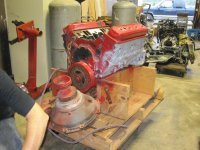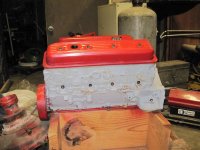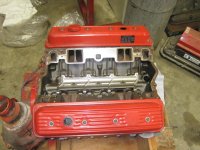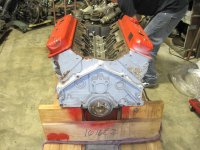I have access to many marine engines (about 16) for very low prices but have no experience with this stuff at all and am in need of getting some help on one item in particular right now.
There is a boat that is for sale locally that needs an engine block (says the marine dealer) and I have one sitting at the shop that is the right block but I have no idea if is a good block or not...for all we know it could be a new rebuild that was just ordered and has sat for a year or so (although I doubt it).
It is a chevy 5.0 which is what this boat I considering needs...the motor has been painted orange /red and is on a shipping crate / pallet.
I cannot find any paperwork yet and the mechanic who owned this (and all of the motors) has passed away leaving it all to his family..which has contacted me to eventually sell everything that is left.
Right now I would really like to figure out if there is a way for me to test this block somehow?
If it's a good block then I can get a nice setup for a very reasonable price.
Any advice is appreciated....also if you want to add anything on testing other engine / outdrive components I will be needing help in all areas going forward.
Thank you.




There is a boat that is for sale locally that needs an engine block (says the marine dealer) and I have one sitting at the shop that is the right block but I have no idea if is a good block or not...for all we know it could be a new rebuild that was just ordered and has sat for a year or so (although I doubt it).
It is a chevy 5.0 which is what this boat I considering needs...the motor has been painted orange /red and is on a shipping crate / pallet.
I cannot find any paperwork yet and the mechanic who owned this (and all of the motors) has passed away leaving it all to his family..which has contacted me to eventually sell everything that is left.
Right now I would really like to figure out if there is a way for me to test this block somehow?
If it's a good block then I can get a nice setup for a very reasonable price.
Any advice is appreciated....also if you want to add anything on testing other engine / outdrive components I will be needing help in all areas going forward.
Thank you.





